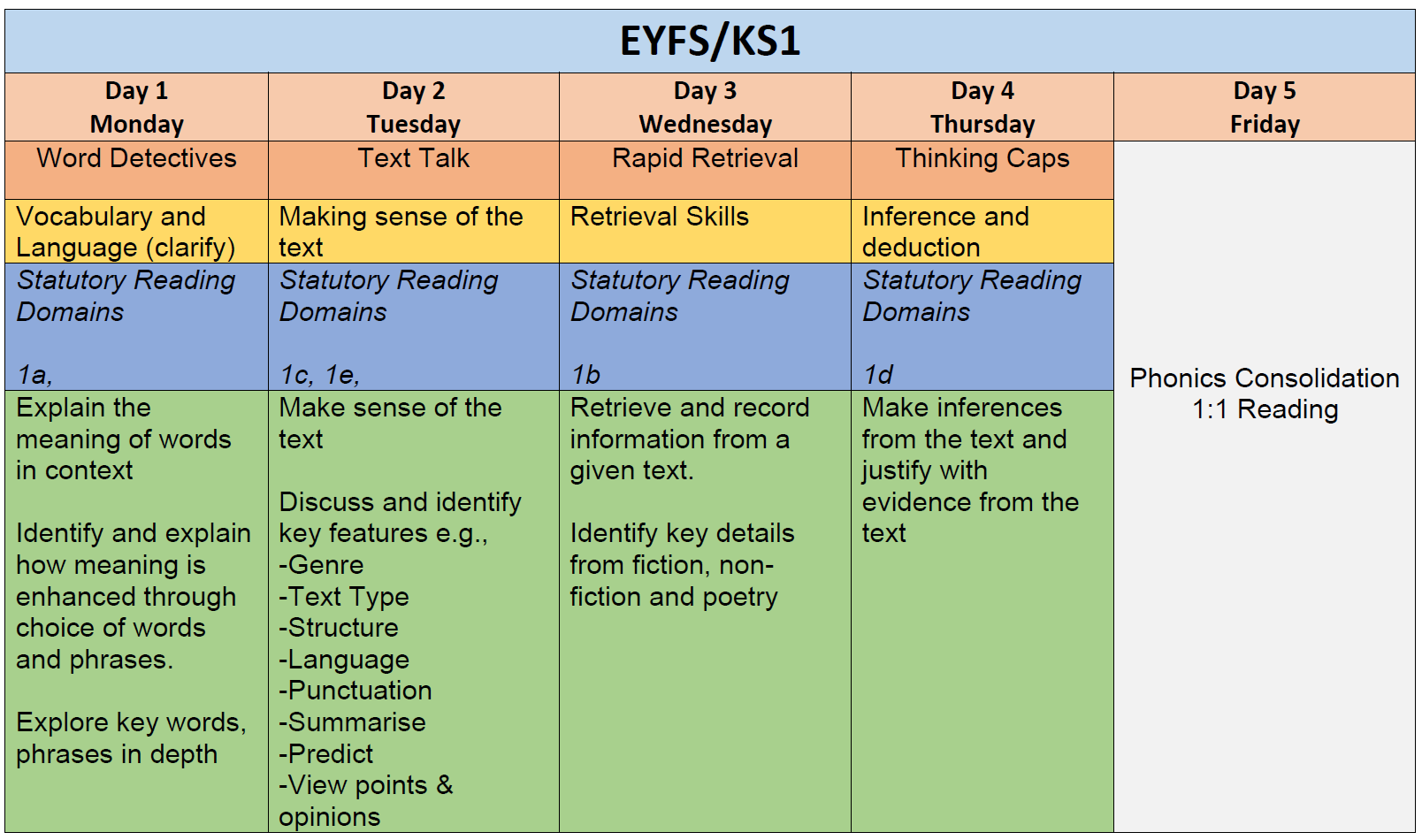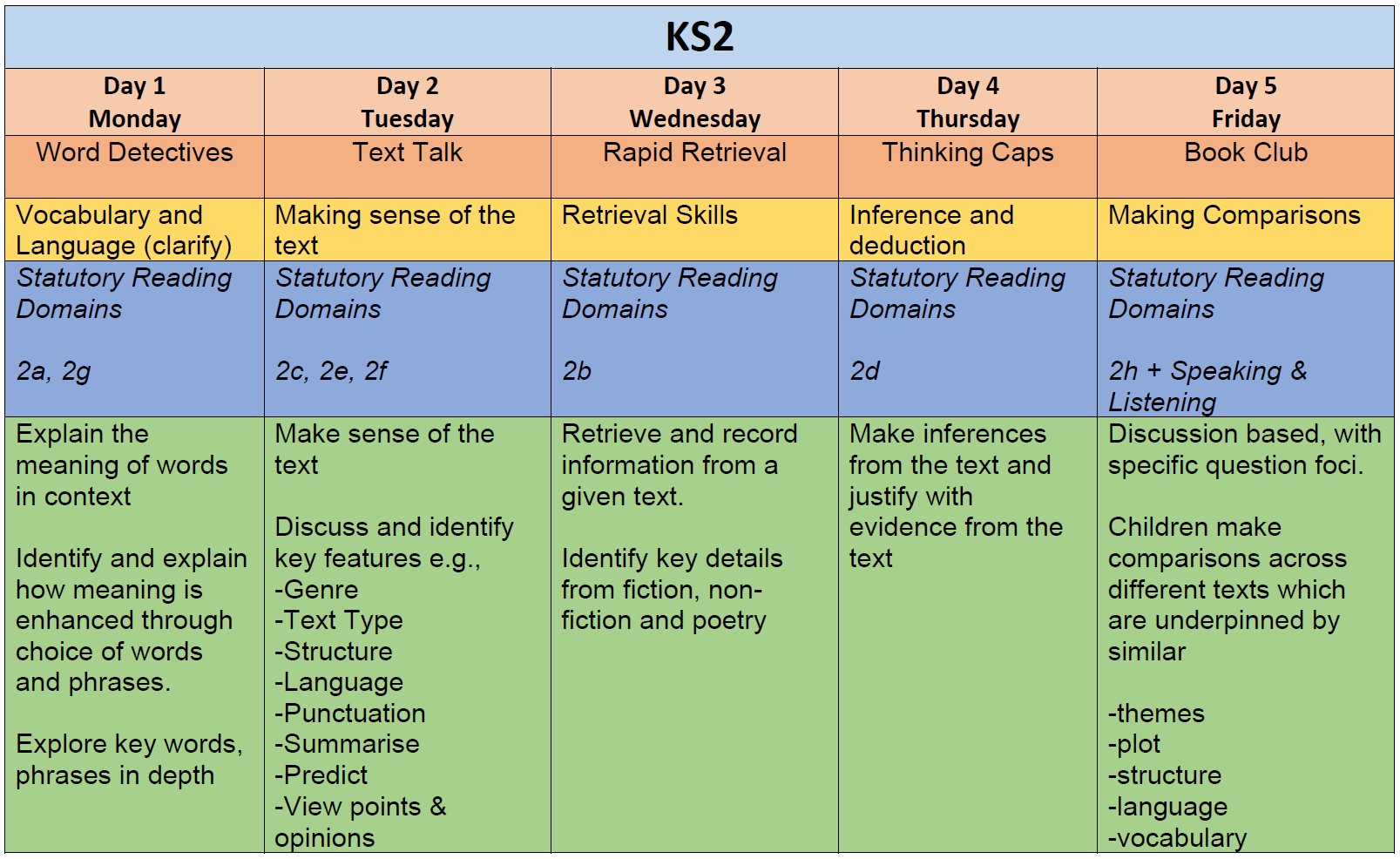English Reading
Please click on the tab below to find the reading spine for each year group.
Reading at Kensington
Intent
At Kensington we aim for our children to become confident, fluent and independent readers who have a good understanding of what they are reading.
We believe that a high quality reading curriculum will develop children emotionally, culturally, intellectually, globally, socially and spiritually. We aim to instil in all of our children a love of reading and balance learning to read with reading for pleasure to give our children the best start. We believe that reading opens the door to learning, enabling children to access the wider curriculum and be successful in all other areas of the curriculum. We value reading as a key life skill and are dedicated to ensuring our children become lifelong readers with a lifelong love of books.
Through the teaching of phonics we want children to be able to master the alphabetic code of English which represents the sounds (phonemes) of the language with single letters and groups of letters (graphemes) in order to decode words, spell words correctly and develop reading fluency. We want children to be able to read with good speed and accuracy.
Implementation
Phonics
At Kensington Community Primary School we use Monster Phonics. Monster Phonics is a multisensory approach, designed to create interest and engagement for children, allowing all children to access and succeed in Systematic Synthetic Phonics lessons. Monster Phonics is an award-winning phonics programme mapped against Letters and Sounds and the Key Stage 1 Spelling Curriculum. It allows for consistency of phonics teaching across the school. This scheme groups the different letters and sounds into ‘phases’ which are then taught in a systematic way.
We teach whole class phonics sessions from reception to year 2. In the EYFS, the continuous provision matches children’s current phonic knowledge and understanding whilst ensuring the children are suitably challenged. Children who need extra support with phonics in order to meet the expected standard take part in carefully considered, small intervention groups to enable them to make rapid progress to build on the letters and sounds that they already know and fill the gaps that they have. All of our sessions are fast paced, creative and fun as this is what we believe the key to effective phonics teaching and learning is. Our younger nursery children are immersed in a multi-sensory, language rich environment with lots of stories, songs, reading, communication and language and sounds work.
In key stage 2, children who are still unable to decode words fluently are supported through separate phonics tasks during Reading Mastery 4/5* (key stage dependent), using the Monster Phonics resources and intervention material. Where extra support is necessary, children receive 1:1 flashcard interventions throughout key stage 1 and 2.
Pupils have regular reading sessions with an adult to ensure they are regularly practising and applying their phonics knowledge. This includes extra one-to-one reading for those children who are most vulnerable to enable them to catch up to meet age related expectations. Teachers also ensure that, where necessary, each child’s home reader is fully decodable so that children can practice and embed their skills, as well as allowing home reading to be a celebration of children reading to parents independently.
Early Reading
The direct teaching of early reading starts in our nursery provision where stories are read to and shared with the children. It is here that children begin to develop a love for books, stories, songs and rhymes. Phonics supports and underpins the teaching of Early reading in our school. Once children have cracked the phonics code and can decode text effectively, we build word recognition and develop fluency and comprehension skills in order to produce secure, confident, independent readers who enjoy and understand the benefits of reading.
Whole Class RM4/RM5
RM4 (EYFS & KS1) and RM5 (KS2) is a highly focussed, daily, whole class 30 minute reading lesson. Each day has a focus on a specific reading skill and specific questions for the children, focussed on using that skill. The children are taught strategies to support them when reading and responding independently and are encouraged to develop a love of reading. The lesson has a focus on one high quality text or an extract for the whole week for children to really get to know and understand the text. The genre rotates to ensure full coverage of fiction, non-fiction and poetry. Reading in these sessions involve; the teacher modelling reading, children reading with a partner, independent reading and children reading to the class. Each reading lesson enables all children to access and use a wide range of ambitious vocabulary and it helps children to make connections with other areas of learning.
Below is a table that shows the coverage of reading skills taught each day of the week in KS1 and KS2. In EYFS the RM4 approach is a part of story time and teachers prepare story readings that capture children’s attention.


1:1 Reading
All children will read with an adult at least once a week and will be heard to read by a teacher on a regular basis. Children who are working below age related expectations for their year group will read with an adult a minimum of three times a week and at least one of those will be with a teacher. All children will have an appropriate chosen reading book for both home and school to support children’s fluency and engagement with texts. Children from the earliest stage will be encouraged to re-read books to practise and develop fluency.
Reading for pleasure and Story time
We value the importance of reading for pleasure – which is why every day begins with timetabled ‘reading for pleasure’ time. When children arrive at school, they read a book that they have selected themselves from their class library or from the shared libraries. These books range from texts that are aspirational, spark an interest to a novel that has been read over and over! All staff will regularly support pupils in selecting books, and pupils regularly complete book reviews and recommendations to support their peers in this process too.
A daily free reading session is timetabled by teachers to give children an opportunity to free read for pleasure or listen to their class teacher or teaching assistant read their class book that the teacher recommends to the class or a recommendation from a child.
Every afternoon, we begin with our ‘afternoon author’. Straight after lunchtime, class teachers will read to their class using high quality texts. Every year group has 3 focus authors (one per term) as a focus whereby the class collaboratively read a selection of their books. Authors are carefully selected authors and collections of books have been signposted to each year group. We are continually diversifying our library books to ensure that all of our children are represented in the books they access around school. Class teachers select a range of appropriate, high-quality texts in which are voted upon by the class. Pupil voice outcomes decide which books are read.
All classes buddy up once a week for paired reading, where the children share stories together. Our children interact with the books they share together.
All classes have reading corners that are well stocked with quality books from across the genre range. Each class library gives children access to a selection of age appropriate books and extracts directly linked to topic, to allow pupils to apply their reading skills across the curriculum.
Our staff as readers displays role model to children the importance of reading for pleasure. All staff prioritise reading and encourage a broad knowledge of authors and illustrators, through reading books and extracts from their chosen class authors and recommended reading lists of books. Our PE teachers will also read for pleasure with our children using sports related articles, poems and stories to begin or end a session.
Our well-resourced magical library enhances our class reading spaces and enables children to escape to imaginary worlds as they sit and enjoy a good book. From Reception to Y6, classes are timetabled to visit the library at least once every other week. Our outdoor reading trolleys provide children with additional access to books at play and lunch time to enhance reading for pleasure throughout their whole day at school.
Reading for pleasure celebrations
We are very privileged to have our very own Patron of Reading, Helen Moss, who visits several times a year to lead reading workshops and for special competition awards. Also, throughout the school year the importance of reading is enhanced through planned events, visits and visitors. We celebrate World Book Day, National Poetry Day, author and poet wow visits, parent reading workshops, parent stay and read sessions, library visits, reading for enjoyment after school club and a range of other wow trips and visitors which enrich children’s engagement and learning.
All around school you will find displays which celebrate the reading we do, the work our reading ambassadors do, celebrations of authors, children’s book recommendations and our reader of the week awards board. Our staff as readers display board role models to children the importance of reading for enjoyment. It prioritises reading and shows the wide range of staff who all share a love of reading. All staff also display a poster to share what they are reading and their recommendation rating.
Reading schemes and home reading books
All children are encouraged to read regularly at home and at every opportunity possible. Children who have not yet reached the expected standard in phonics will have a decodable reading book to practise reading, which supports the sounds they have been taught with books that are decodable for them at that stage of their learning. Accurate decoding will be assured before children move on to read a new book. Parents are encouraged to listen to their children read at home, ask questions and to talk about books and read stories to their children.
We have a wide range of reading books including, Bug club, oxford reading tree, Rising Stars, Collins Big Cat, Ginn, and Treetops which are banded to match National Reading bands. When children have progressed through a breadth of scheme books and are confident with decoding and understanding within a National band, they move onto ‘Free Readers’. In KS1 the children who have phonics lessons will be supported to select a decodable book from within the phonics phase or set they need to practice/become fluent with. All children who have mastered the phonics code will select their own reading book from within the National band for their reading age. This is tracked to identify children who are not reading enough at home and may require additional support in school.
Supporting children at risk of reading failure
We recognise that some children will need extra support when learning to read. If children have not met the phonics screening check therefore not secured their knowledge of phonics they will have additional targeted phonics sessions for specific GPCs (Grapheme Phoneme Correspondences) and their progress will be closely tracked using Phonics Tracker. Additionally these children will receive additional 1:1 reading with a teacher and pre-reading of RM5 texts to become familiar with word reading.
Reading is focus for our targeted teacher/TA interventions such as flashcards, IDL, Reading Plus and focussed comprehension groups across our school for pupils working below the expected standard to improve children’s word reading and comprehension. Flash Academy supports children who are new to country to learn English by listening and reading in their home language and English.
Assessing Phonics, Early Reading and Reading
Teachers regularly assess children’s phonics knowledge using Phonics Tracker – an instant assessment and tracking program that is used by staff to carefully track phonics progress across Reception, KS1 and KS2 (where needed).
Salford reading assessments are carried out in Autumn term, Spring and Summer term to assess children’s decoding and comprehension ability and this informs children’s next steps. NFER assessments are also completed in Autumn and Summer term and teachers use the data as part of their assessment, combined with the data analysis to inform future planning. Reading moderation will take place regularly to ensure teachers’ judgements are secure and next steps for children are continually identified and addressed.
Alongside the 2014 National Curriculum programme of study for reading, teachers draw upon key learning statements reading guidance. Collectively, these documents outline the specific skills, knowledge and understanding required for each year group. In addition, they inform what knowledge the children already know and what knowledge is needed to ensure that children continue to make progress in their journey to become confident and competent independent readers.
Teachers draw upon LAPS (learning and progression steps) which support learning towards achieving the Reading expectations in each year group. The Learning and Progression Steps are designed to scaffold the learning required in order to meet the expectations of the National Curriculum. These key pieces of learning will support pupils in becoming effective and reflective independent readers.
LAPS are numerically ordered from LAP 1 to LAP 3, to reflect the gradual development of the skill/s involved. Teachers draw upon these to ensure that the planning and delivery of teaching and learning is adapted to meet the needs of all children, as well as identifying and addressing gaps.
Impact
By the time children leave Kensington Primary school, they are confident, competent readers who read widely for a range of purposes. Our children can recommend books to their peers, have a thirst for reading a range of genres and enjoy participating in discussions about books. They have increased levels of comprehension and understanding of vocabulary, including evaluating an author’s use of language and the impact this can have on the reader. They can also read books to enhance their knowledge and understanding of all subjects on the curriculum, and communicate their reading to a wider audience. The impact of our reading curriculum will ensure our pupils are academically prepared for life throughout their educational journey and life beyond primary school.
Home Learning – Supporting Reading

